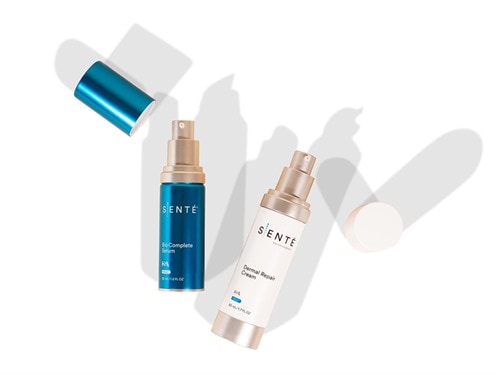
After this time, apply sunscreen to the area of treatment every day. You should avoid the sun for 1 month before the procedure to 1 month afterward.
SENTE DERMAL REPAIR FOR LASER HAIR REMOVAL SKIN
Since your skin will be sensitive after laser hair removal, your physician will recommend that you avoid getting direct sun exposure. You may also take acetaminophen (Tylenol) or anti-inflammatory medications for pain relief. Your physician may prescribe a steroid cream to help minimize any pain and discomfort following your treatment. This method helps to reduce temporary swelling and pain after your laser hair removal treatment. You can also use an ice pack wrapped in a paper towel.

Wet a clean, soft washcloth with cool water and place it on the treated area for several minutes at a time. In general, you should do the following to help promote skin healing and to prevent side effects. Your physician will give you specific instructions for taking care of your skin after laser treatments. Read on to learn more about the do’s and don’ts regarding laser hair removal aftercare, and when you should contact your physician for help. The way you care for your skin after the procedure can help reduce the risk of side effects and possible damage.

Still, despite such advances in technology, laser hair removal remains a complex treatment that requires careful attention to aftercare. Your physician will determine the best lasers to use based on both your hair and skin colors, as well as your hair texture. Laser treatments are most commonly used for your:Ī 2020 research review showed that advances in long-pulsed lasers have made it possible for this treatment to address not just dark hair on light skin as in the past, but also darker skin tones, too. The process works by concentrating beams of light to target hair follicles and destroy their hairs. Laser hair removal is a professional procedure generally conducted by a dermatologist to help get rid of unwanted hair. Share on Pinterest Getty Images/LaylaBird


 0 kommentar(er)
0 kommentar(er)
